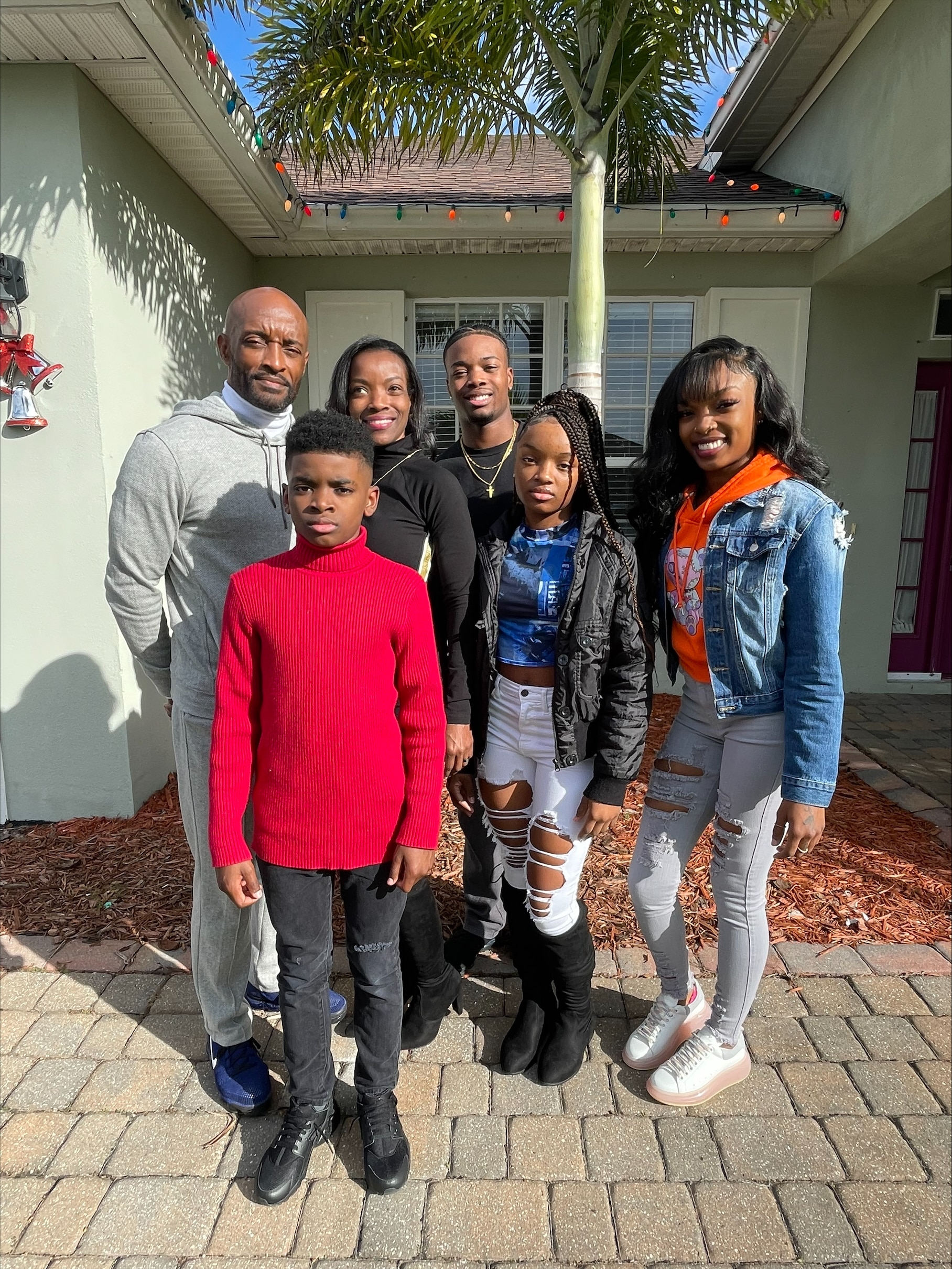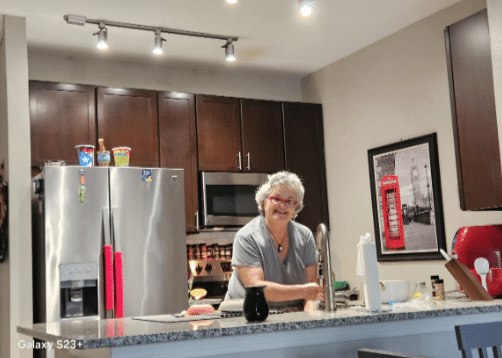How Income Impacts Housing Access for Veterans
 When it comes to stable housing, income impacts is often the deciding factor between security and homelessness, especially for veterans. At National Veterans Homeless Support (NVHS), we’ve worked with countless veterans across Central Florida who, despite years of service, struggle to access affordable housing because of limited or unstable income.
When it comes to stable housing, income impacts is often the deciding factor between security and homelessness, especially for veterans. At National Veterans Homeless Support (NVHS), we’ve worked with countless veterans across Central Florida who, despite years of service, struggle to access affordable housing because of limited or unstable income.
are
Some veterans rely solely on disability benefits or social security. Others may be working part-time, holding multiple low-wage jobs, or recently unemployed. For many, their income disqualifies them from certain assistance programs, yet still isn’t enough to cover rising housing costs, utilities, and basic needs. Understanding how income affects housing access is crucial to developing real, lasting solutions and ensuring that no veteran is left without shelter.
Let’s explore how income impacts housing access for veterans—and how we help close the gap.
The Financial Landscape for Veterans
Many veterans leave the military without a clear pathway to sustainable income. The transition to civilian life can be overwhelming—especially when faced with:
- Gaps in employment history
- Disabilities that limit job options
- Difficulty accessing benefits or entitlements
- High housing costs compared to fixed incomes
The result? Too many veterans are living paycheck to paycheck—or worse, sleeping in shelters or outdoors.
How Income Affects Housing Eligibility
When veterans seek assistance through housing programs, one of the first things assessed is their income. This is used to determine:
- Eligibility for subsidized housing (like HUD-VASH)
- Priority for emergency shelter or transitional housing
- Qualification for rental assistance or utility relief
The challenge is that income thresholds vary from program to program, and many veterans fall into the “in-between” zone—not earning enough to afford rent but making too much to qualify for certain services.
HUD-VASH and Income
The HUD-Veterans Affairs Supportive Housing (HUD-VASH) program is one of the most effective tools available to veterans experiencing homelessness. It combines HUD’s Housing Choice Voucher rental assistance with case management and clinical services provided by the VA.
Eligibility for HUD-VASH considers:
- Veteran status
- Chronic homelessness or housing instability
- Ability to participate in case management
- Income level (though low income is prioritized, there is flexibility)
Here’s the good news: Veterans don’t have to earn zero income to qualify. Those with modest disability benefits or part-time work often still meet the criteria.
The Role of Disability Income
Veterans who receive disability compensation from the VA may worry that this income disqualifies them from housing help—but that’s not always the case.
Disability income is considered in housing applications, but:
- It’s often exempt or only partially counted in many federal programs
- It may help veterans qualify for priority housing categories
- It demonstrates a stable source of income, which landlords and case managers appreciate
In other words, disability income doesn’t eliminate housing support—it often strengthens it.
When “Too Much” Isn’t Enough
There’s a harsh reality facing many veterans: earning “too much” to qualify for assistance but not enough to secure stable housing.
For example, a veteran working full-time at minimum wage in Central Florida might earn $1,800 monthly. That’s over the federal poverty line—yet not enough to afford rent, utilities, and basic expenses in most areas.
These “in-between” veterans face:
- Long waitlists for public housing
- No access to emergency grants
- The constant risk of eviction
We help fill this gap with our Emergency Financial Assistance, Transitional Housing, and Rapid Resource Referral programs and assistance.
If you or a veteran you know is struggling to stay housed—reach out to us. We are here with real solutions and a support system that understands. Contact us today and take the first step toward stability.
 Success Story: Wanda’s Path to a Safer Home
Success Story: Wanda’s Path to a Safer Home
Wanda G., a 62-year-old service-connected disabled Navy veteran, found herself in a dangerous housing situation. The apartment she shared with her wife was riddled with black mold due to a leaking roof, leaving both of them physically ill and in desperate need of a safe place to live.
When Wanda reached out, NVHS stepped in immediately, covering moving expenses and deposits to help her relocate to a clean, stable home. Today, Wanda is thriving. “We are doing great. We love it here. It’s nice. I appreciate you with all my heart. Thank you for all that you do,” she shared.
Wanda’s story is a powerful reminder of how swift, compassionate support can transform a veteran’s life.
Barriers Beyond Income
While income is a major hurdle, it’s not the only one. Veterans also face:
- Eviction records that make landlords hesitant
- Credit issues from past financial hardship
- Lack of social support to navigate complex applications
- Unmet mental health needs that interfere with employment or housing retention
That’s why income support alone isn’t enough. Veterans need holistic, long-term solutions that address the full scope of their needs.
Changing the Story for Central Florida’s Veterans
At NVHS, we meet veterans where they are—literally and emotionally. Whether they’re sleeping in a car, temporarily staying with a friend, or trying desperately to hold on to their apartment after a job loss or health crisis, we show up without judgment and with real solutions.
Transitional Housing
Veterans between homes can stay in safe, supportive environments while we work with them on long-term solutions. Income is not a barrier to entry—only a step toward independence.
Rapid Resource Referral & Case Management
We assess each veteran’s income, benefits, and situation to connect them with the best-fit local, state, or federal programs. We know the system, and we walk veterans through it.
Emergency Financial Assistance
Rent past due? Lights about to be shut off? We step in with direct aid to keep veterans housed. Whether they receive disability or are temporarily out of work, we prioritize urgency and sustainability.
Food & Basic Needs
When veterans focus on survival, they often see housing as out of reach. We meet their basic needs so they can start rebuilding their lives.
Prevention Services
If a veteran is earning income but struggling to stay afloat, we provide budget support, connect them with job resources, and offer assistance before they fall into homelessness.
What to Do If You’re a Veteran in Need
If you or someone you know is a veteran in Central Florida struggling with housing access due to income or other barriers, you’re not alone. NVHS is here to help.
Here’s what you can do:
- Reach out to us: Call or apply for help.
- Gather your documents: Proof of income, veteran status, and any notices (eviction, utility shutoffs).
- Be honest about your situation: Our team is here to listen without judgment. The more we know, the better we can help.
We work with veterans of all income levels, from zero-income to disability recipients to underemployed individuals trying to make ends meet.
Every Dollar Makes Housing Possible
NVHS has helped reduce veteran homelessness in Central Florida by 90%. But our work isn’t done.
Your support helps us:
- Keep veterans in their homes
- Provide emergency assistance to those in crisis
- Offer dignity, stability, and hope
If you believe no veteran should sleep on the street, now is the time to act.
Support the Path to Stability for Veterans
Income shouldn’t be a barrier to a safe, stable life for those who served. Together, we can make housing accessible for every veteran, regardless of income or past or current situation.
Here’s how you can help:
- Donate to support emergency aid and housing programs
- Share this message on social media to raise awareness
- Connect a veteran in need with our team
- Volunteer to support outreach, housing setup, or event efforts
Let’s build a community where every veteran finds their footing. One home at a time.


